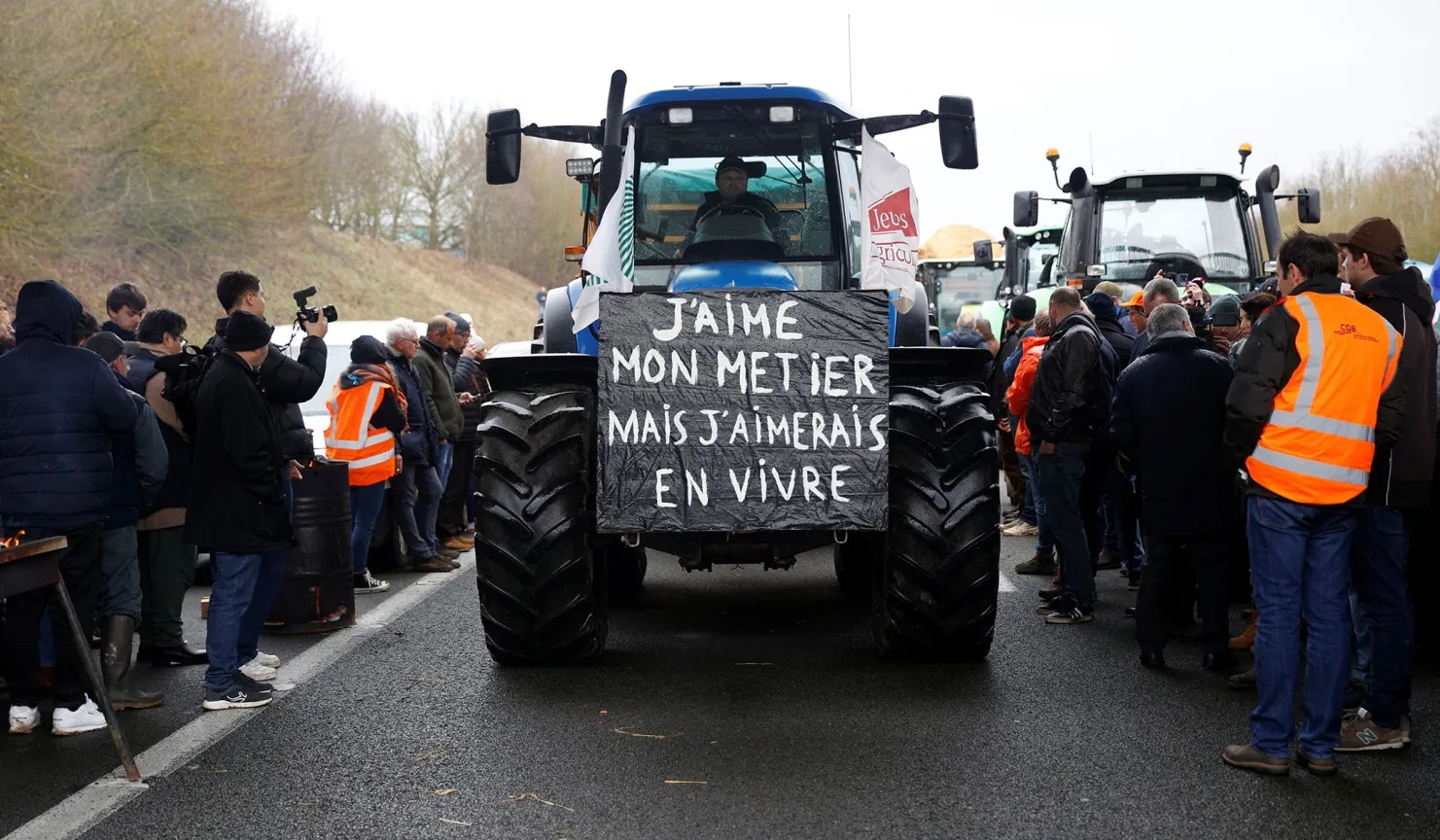Food & Climate
French farmers still refuse EU-Mercosur trade agreement, so, President Emmanuel Macron has reiterated his intention to block the agreement, but why this rejection.
Macron is arguing that it threatens French agriculture, undermines environmental standards, and creates unfair competition for European farmers.
Speaking at the Paris Agricultural Show on Saturday, Macron said that France is ramping up its efforts to form a “blocking minority” within the European Union to prevent the implementation of a trade agreement between the EU and Mercosur, according to a report seen by “Food & Climate” platform.
Although he initially defended the agreement, Macron quickly changed his mind, framing his about-face as a retaliatory measure against the environmental policies of Jair Bolsonaro, Brazil’s then-president, which were detrimental to the fight against climate change.
Even though Bolsonaro has since left office, Macron has stood firm on the issue.
During his visit to Argentina in November, Macron reiterated his opposition to the deal in its current form, stating that it would be “very bad for our agriculture”.
What is the agreement which French farmers refuse?
The agreement, announced in December by European Commission President Ursula von der Leyen, aims to establish a vast free trade zone encompassing more than 700 million people across the EU and Mercosur nations – Argentina, Brazil, Paraguay, and Uruguay.
However, it has faced strong resistance from French farmers and political groups.
Taking to social media, Macron posted on X: “I will always defend the French agricultural model, so that our farmers continue to produce and feed us, as they know so well how to do, with heart”.
More than 600 French parliamentarians have signed a letter to Ursula von der Leyen, arguing that the conditions for approving the Mercosur deal have not been met.
Lawmakers warn that this agreement could result in unfair competition for European producers, endanger food security, and contradict the EU’s climate goals.

The FNSEA – France’s largest agricultural union – has launched a series of protests since November, arguing that the agreement would put European farmers at a disadvantage.
Demonstrations have included gatherings outside government offices and road blockades, reflecting the growing dissatisfaction among French farmers regarding what they see as unfair competition.
Despite French opposition, the European Commission – backed by Germany and Spain – is pushing for the deal’s finalisation by the end of the year, according to “rfi”. The agreement aims to facilitate trade between Europe and South America by gradually eliminating nearly all customs duties on trade between the two blocs.
Lengthy negotiation
After a lengthy negotiation process that began in the early 2000s, the agreement was formally concluded on June 28, 2019. However, several involved countries, on both sides of the Atlantic, expressed hesitations that have delayed its ratification.
Brazilian President Lula’s election, in 2022, revived the matter, and the European Commission and Mercosur resumed talks to negotiate an annex to the deal, which was intended to clarify the text of the agreement and address the main criticisms that have been leveled against it.
For several years now, this project has been a source of great concern among farmers, who have denounced the threat that a massive influx of South American foodstuffs could pose to the French market. The agreement includes cutting import tariffs on up to 45,000 tons of honey, 60,000 tons of rice and even 180,000 tons of sugar.
However, the main point of contention has been the beef quota – 99,000 tons of beef that will be subject to a fixed tariff rate of 7.5% – as well as 60,000 tons of another type of bovine meat and 180,000 tons of poultry, which will be duty-free. Livestock farmers have condemned it as a form of unfair competition, as the farms in South America are larger, the health and environmental standards are less strict and the labor costs are lower.
In France, in 2020, a commission of experts, led by environmental economist Stefan Ambec, tasked by the government to assess the treaty’s potential effects, concluded that the agreement “represented[d] a missed opportunity for the EU to use its negotiating power to obtain solid guarantees that meet the environmental, health, and broader societal expectations of its fellow citizens.”
The report cited risks such as deforestation in Mercosur countries, which could increase by 5% annually over the six years following the agreement’s ratification, due to the predicted rise in beef production.

A recent audit by the European Commission, published in October, reinforced concerns about health risks raised by the agreement’s detractors. It concludes that Brazil, the world’s leading beef exporter, cannot guarantee that the red meat it exports to the EU has not been produced using estradiol 17-β, a growth hormone that was banned in Europe decades ago but is still widely used in Brazil, according to “Le Monde”.
However, while it has rejected the proposed agreement “as it stands,” the government has remained open to a revised version. It has requested that the European Commission renegotiate the text more thoroughly, particularly by incorporating “mirror clauses,” which would impose identical standards on products traded between the two blocs.
The French government has also supported adding binding environmental measures, to make the treaty compatible with the goals of the Paris Climate Agreement. However, the EU Commission does not currently seem inclined to comply with these demands.

